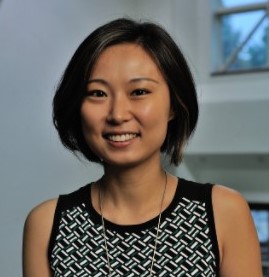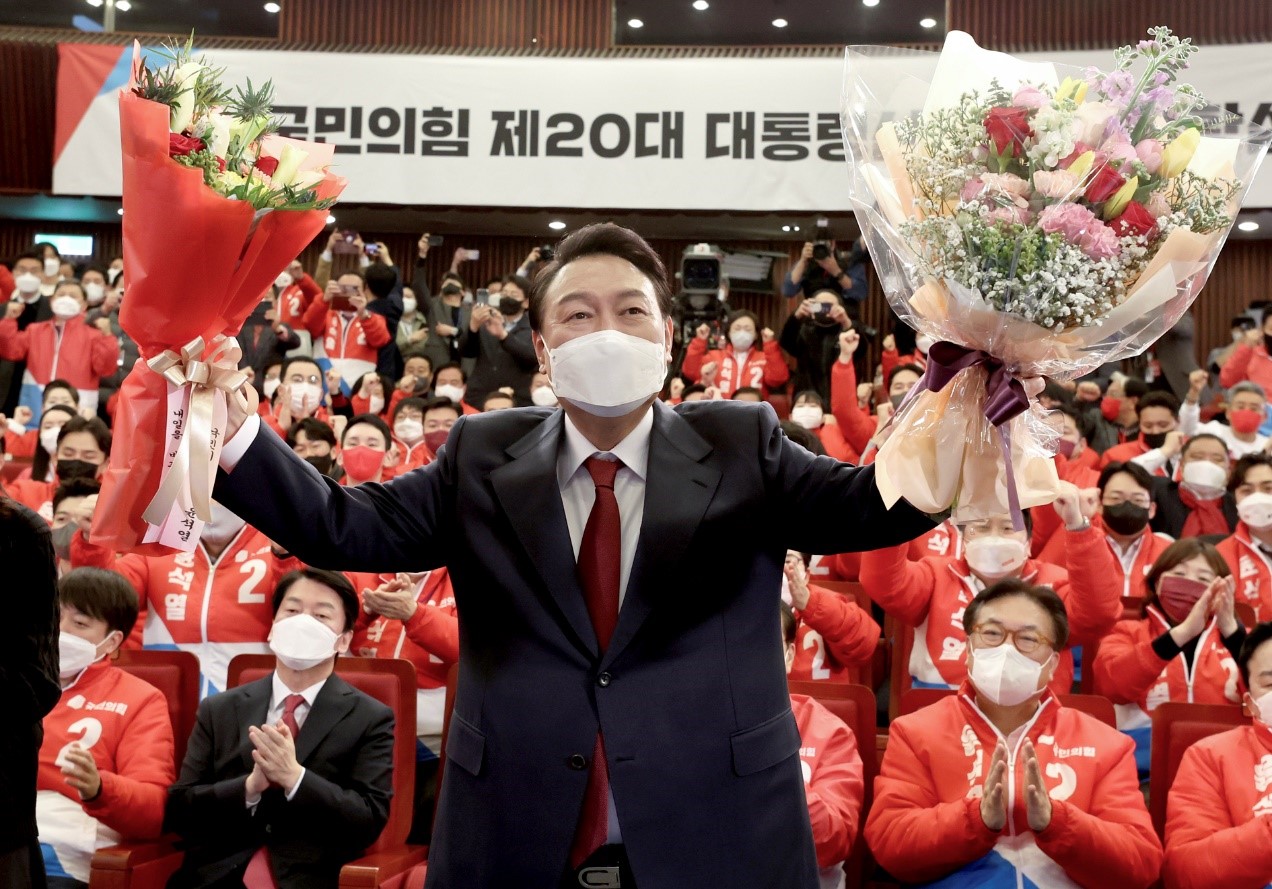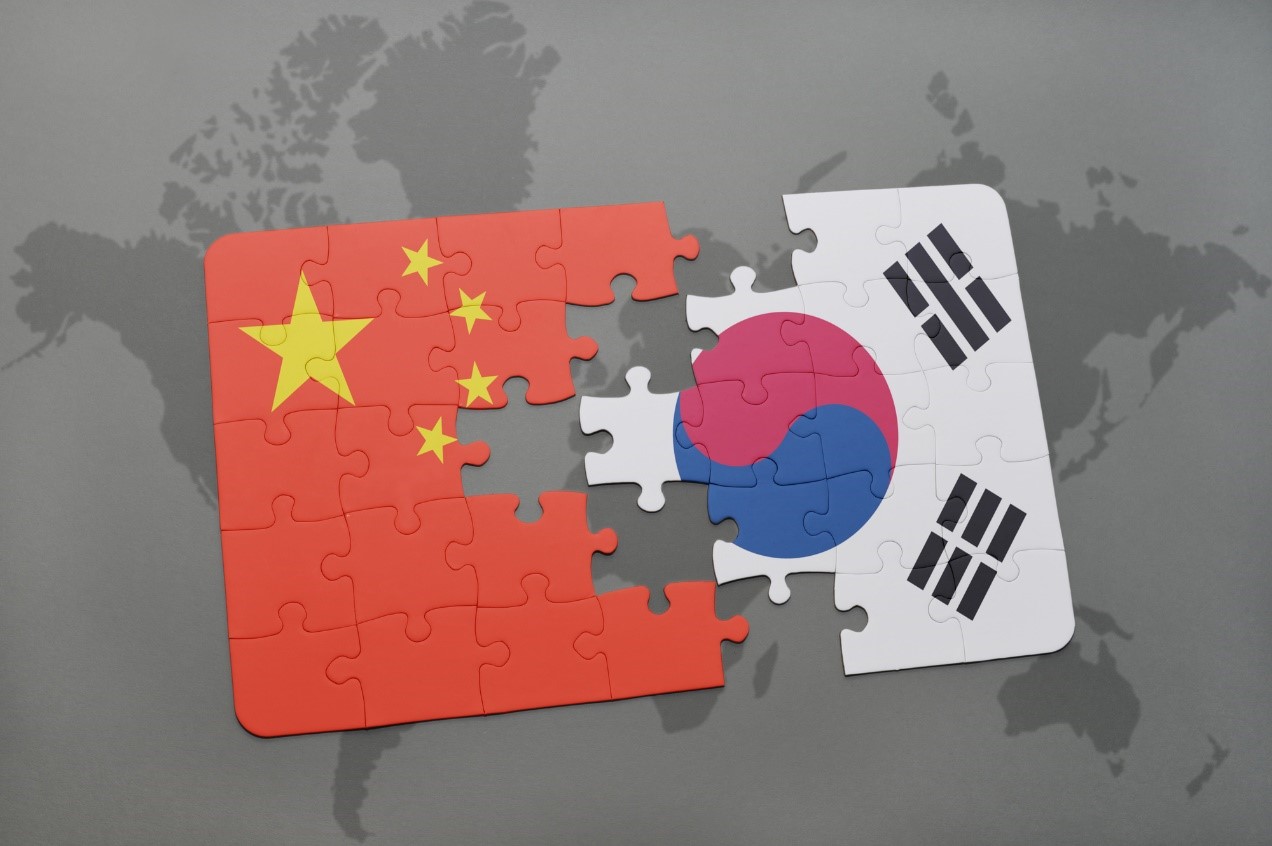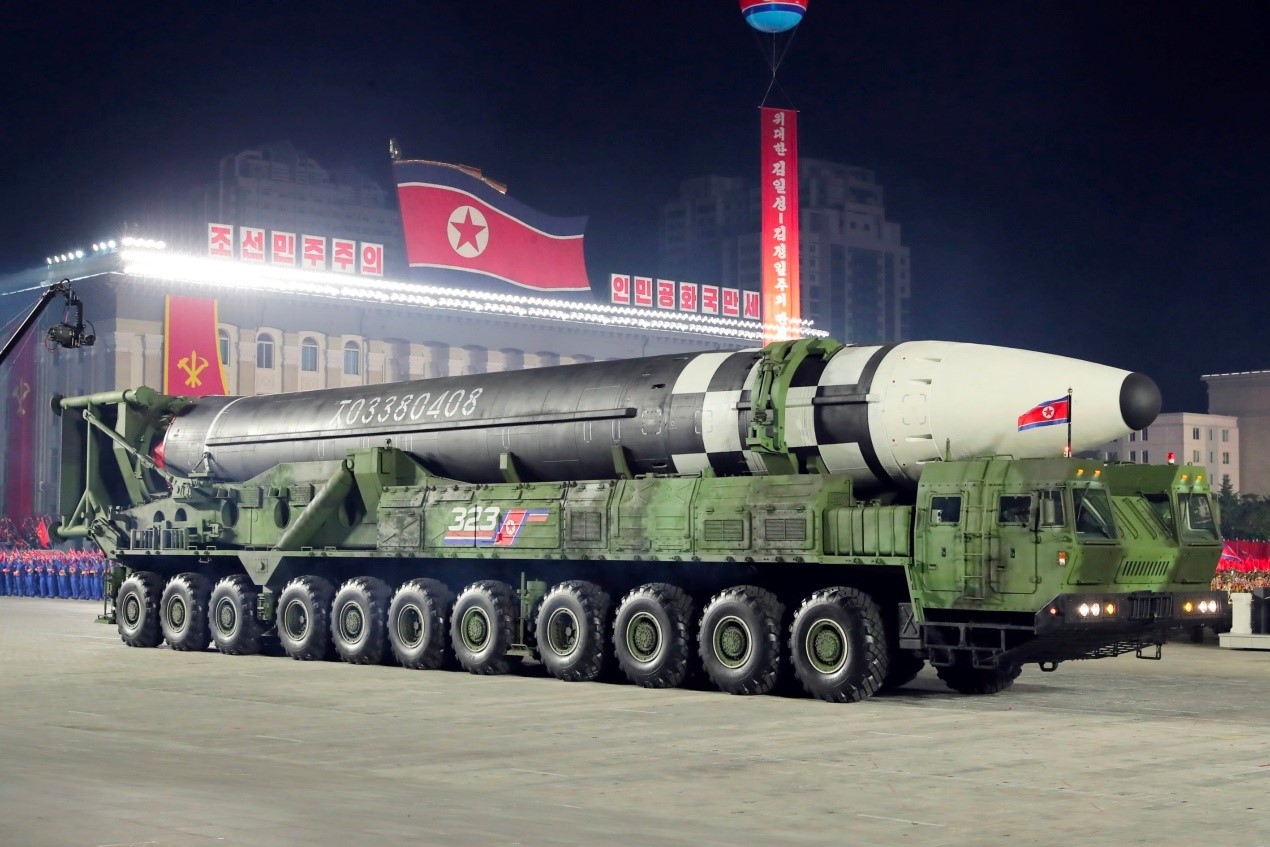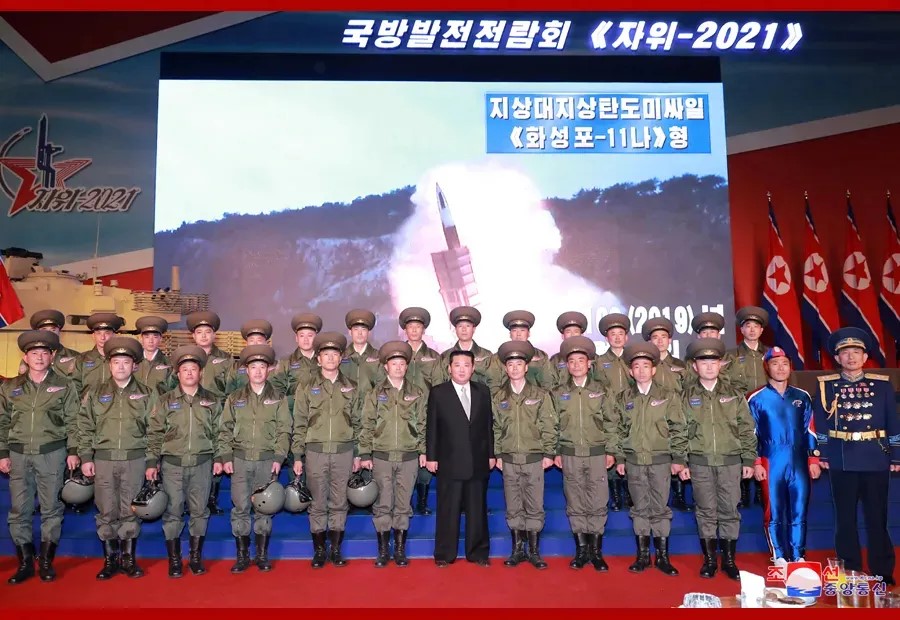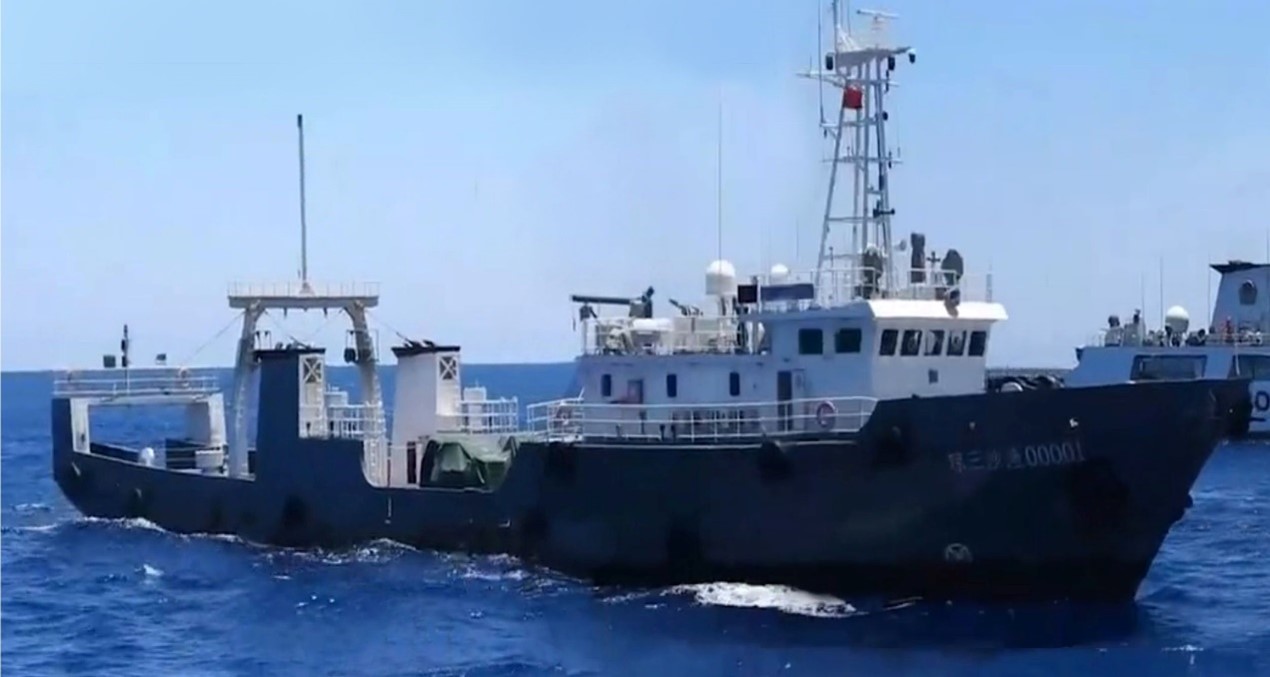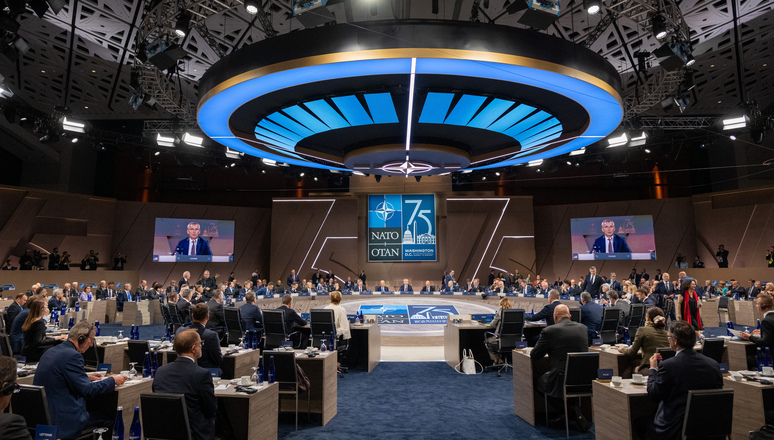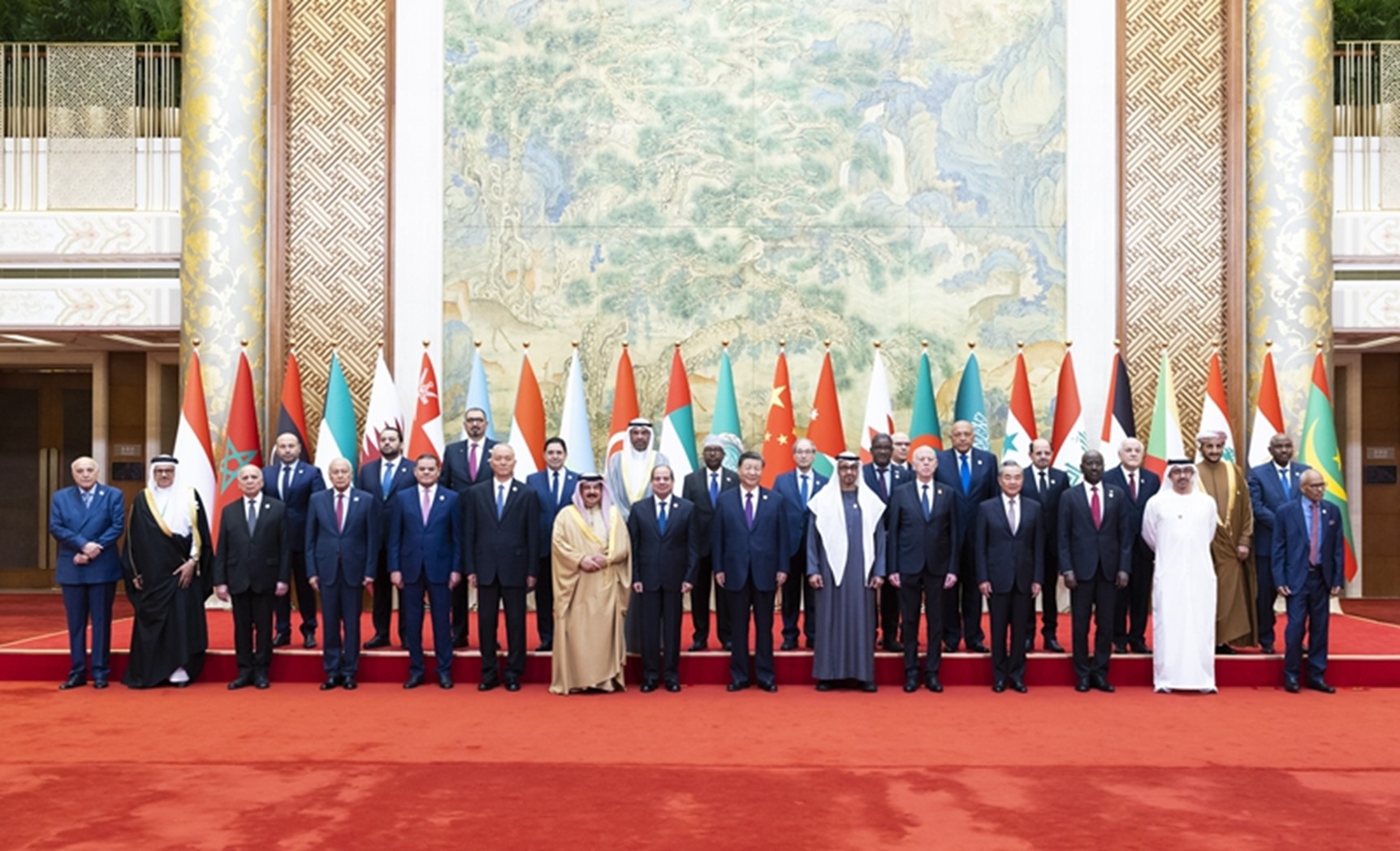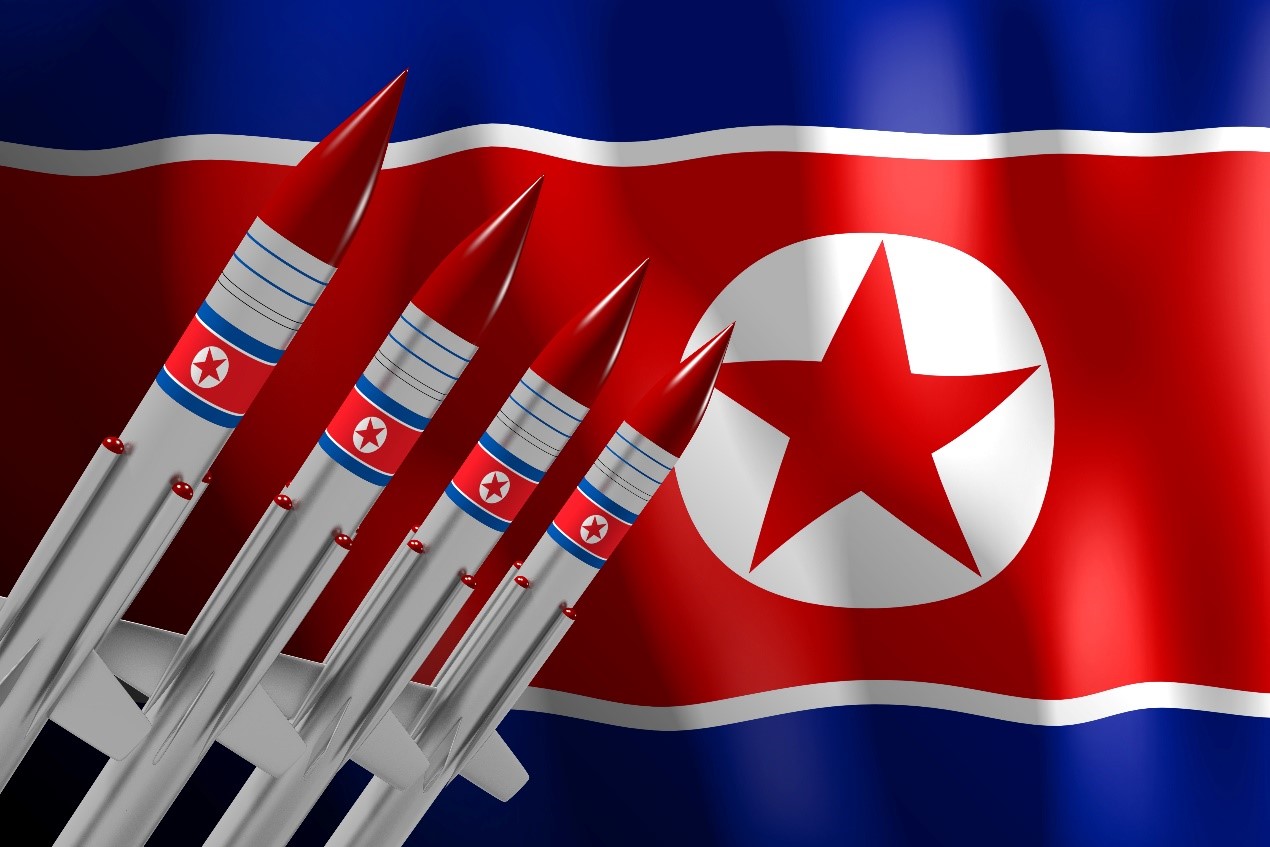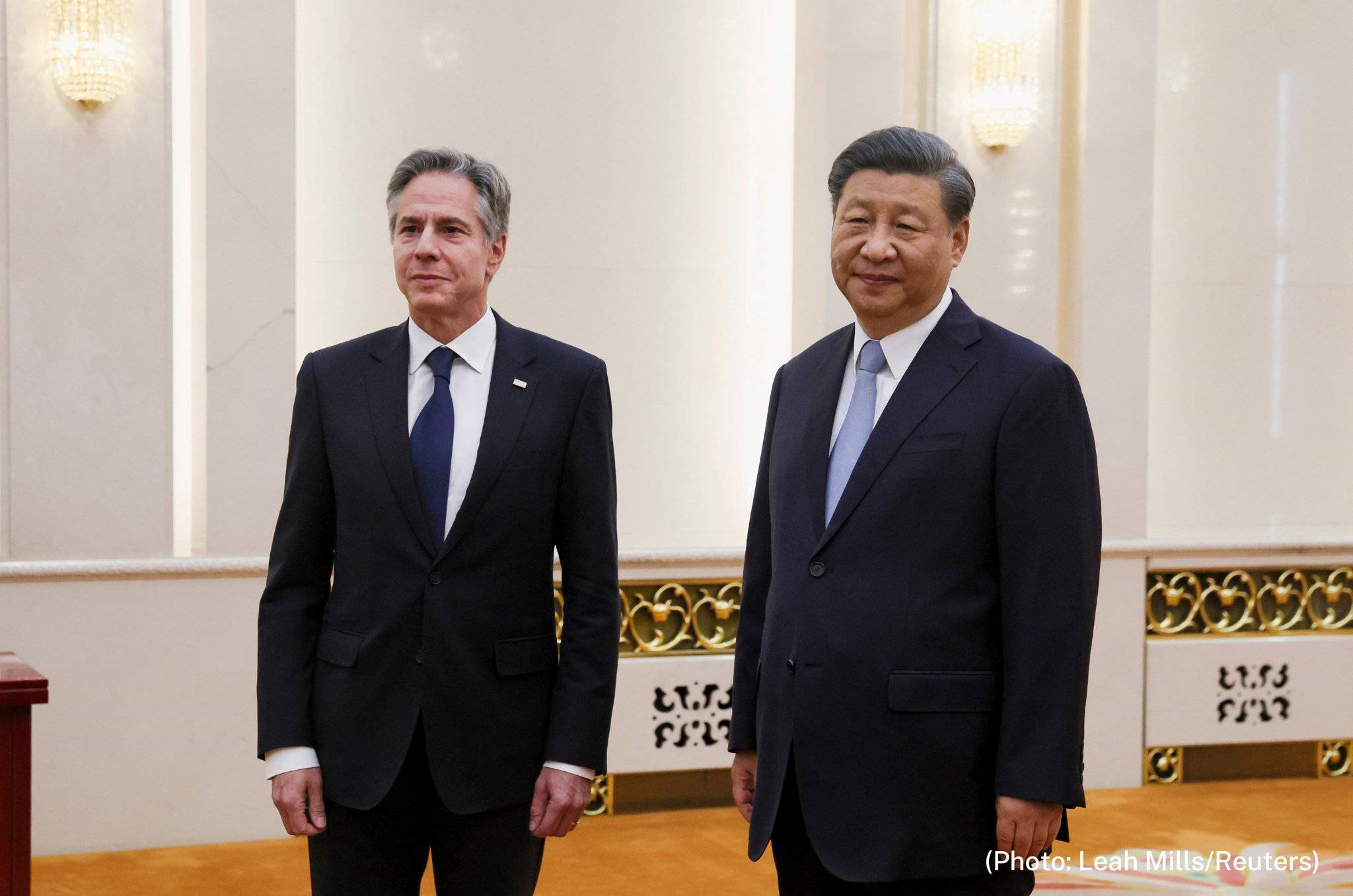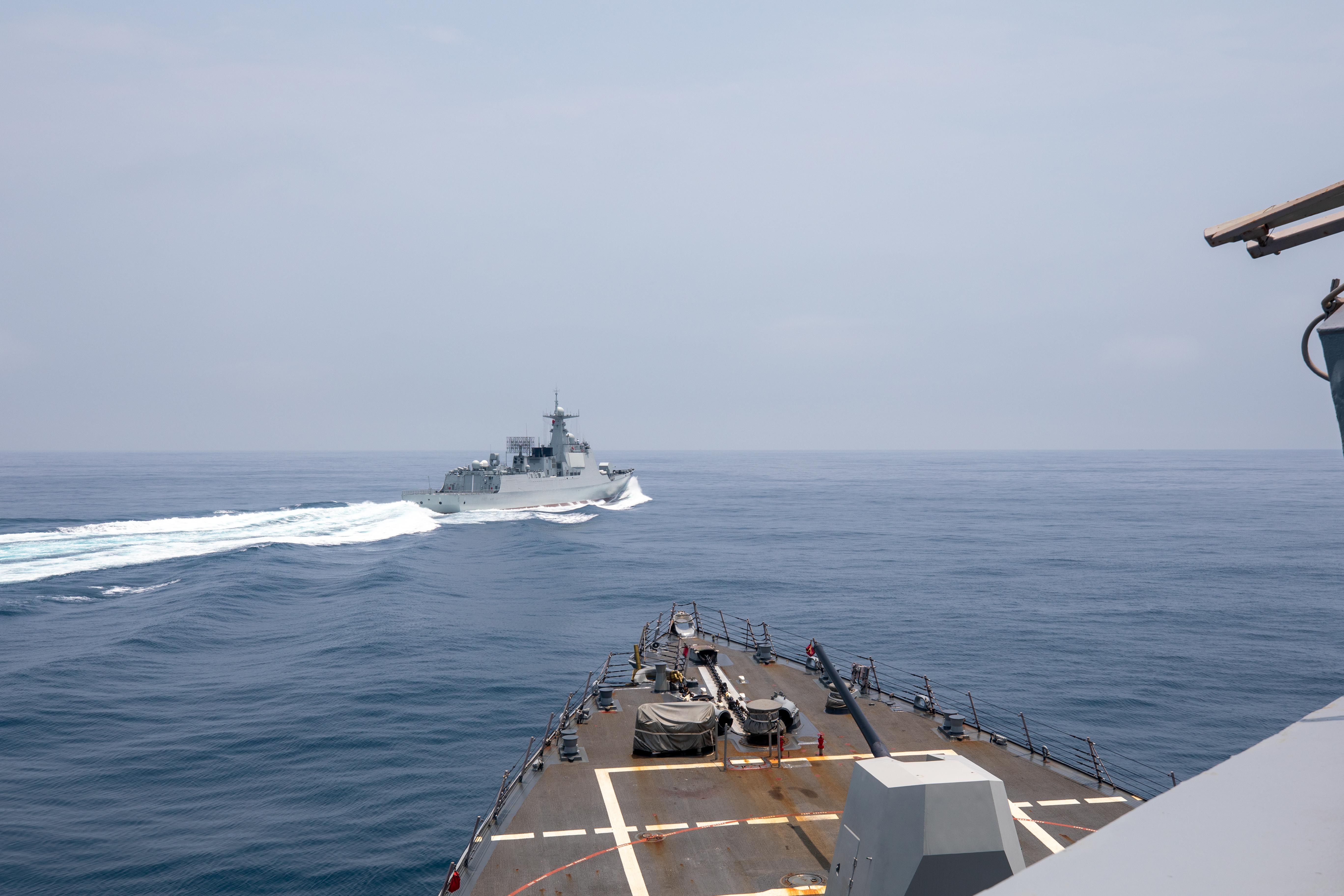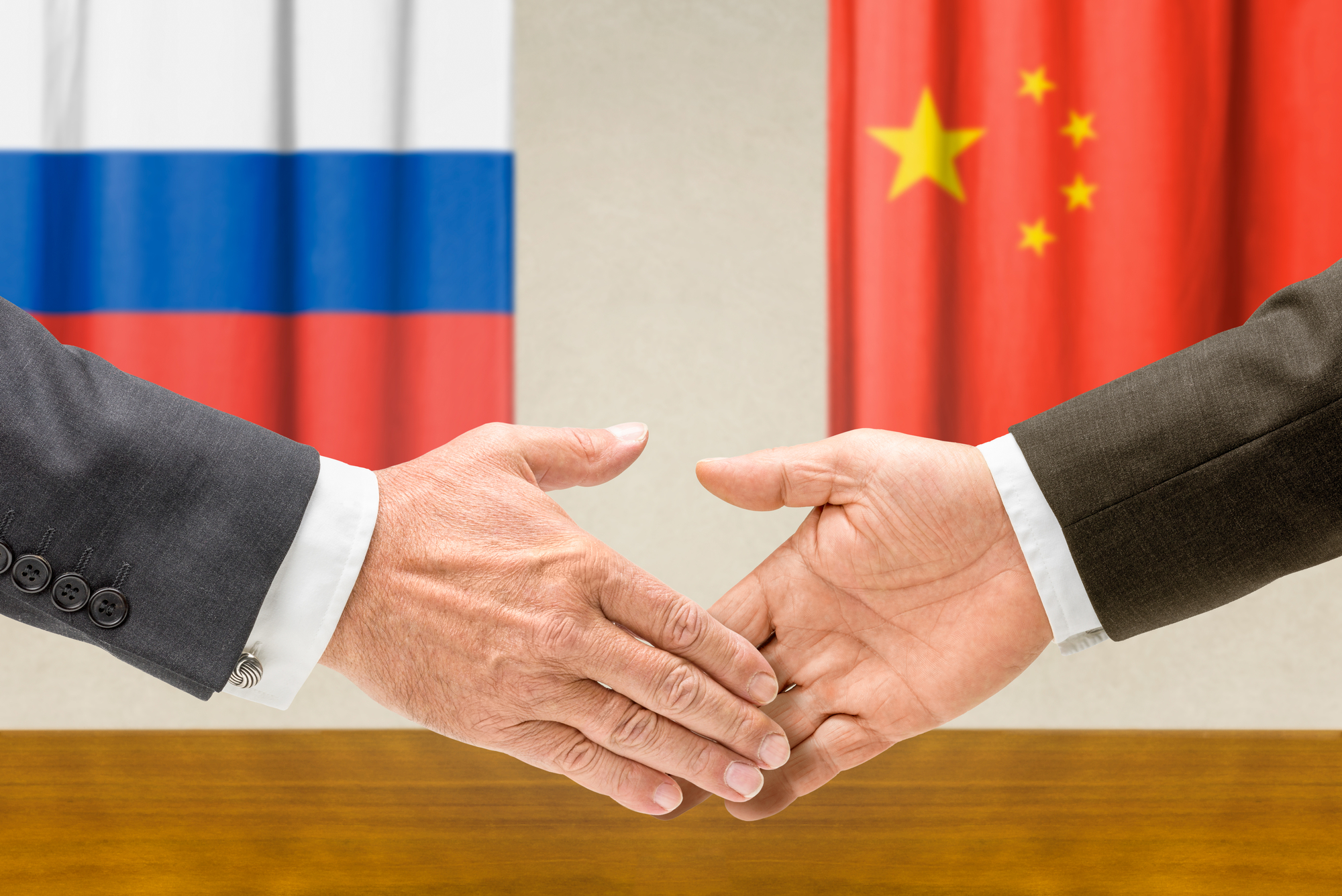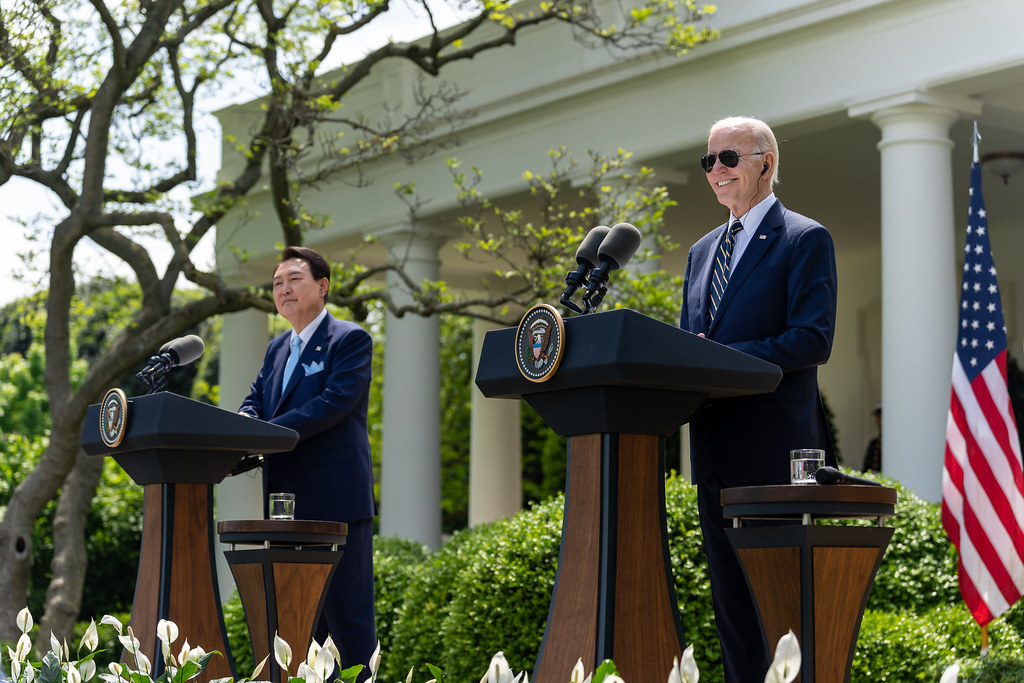Prospects of the New South Korean Administration’s Policies toward Taiwan and China
As a candidate, Yoon could — and should — boldly state what went wrong with his predecessor’s foreign policies. Korean media have termed Yoon’s enthusiasm for drastic changes to Moon’s administration “ABM (All but Moon).” Upon entering office, however, Yoon could very well find himself stuck with the same set of challenges and a narrow room to maneuver as did all his predecessors. Picture source: The Joong Ang, China, March 10, 2022, The Joong Ang,
Prospects & Perspectives 2022 No. 17
Prospects of the New South Korean Administration’s Policies toward Taiwan and China
By Young-Im Lee
March 25, 2022
Yoon Seok-youl of the conservative People Power Party was elected the 13th president of South Korea on March 9. The former prosecutor-general under president Moon Jae-in defeated former mayor and governor Lee Jae-myung with a 0.8 percent margin of victory, the narrowest ever since the country’s democratization in 1987.
As a candidate, Yoon outlined his foreign policy plans in a Foreign Affairs article published on February 8. In the article, Yoon argued that Moon had prioritized inter-Korean cooperation based on “a parochial and shortsighted conception of the national interest" and that “the US-South Korean alliance has drifted.” Turning to the People's Republic of China (PRC), Yoon claimed that “South Korea has succumbed to Chinese economic retaliation at the expense of its own security interests” and “has failed to adapt, maintaining an approach of strategic ambiguity without stating a principled position” in the context of rising conflict between the United States and China.
Yoon is considered to have a pro-U.S. and anti-PRC stance. The U.S. Congressional Research Service reported that Yoon “may pursue policies more in line with Washington’s than his predecessor [who is liberal].” After Yoon assumes the presidency on May 10, to what extent will South Korea’s foreign policy change from the previous trajectory?
Necessitated Inconsistency
South Korean conservatives are generally perceived to be pro-U.S., are willing to negotiate with Japan, are more hawkish on North Korea, and have grown more willing to raise objections about PRC policies. On the other hand, liberals/progressives seek more autonomy from the U.S., more collaboration with PRC, more engagement than sanctions against North Korea, and are more critical of Japan. In reality, however, South Korean administrations have had to balance their country’s security alliance with the U.S. and deepening economic relations with the PRC. President Roh Tae-woo changed South Korea’s diplomatic ties from the Republic of China (Taiwan) to the PRC in 1992, futilely hoping that Beijing would move closer to South Korea and away from North Korea. Since then, South Korea's trade with PRC has increased steadily. In 2004, the PRC became South Korea’s top trading partner, replacing the U.S. In 2020, about a quarter of South Korea's trade came from China, which is larger than the combined share of the second and third top trading partners, the U.S. and Japan. Given that about 40% of South Korea’s GDP comes from exports of goods and services, the importance of the PRC as a trading partner is consequential. Moreover, the PRC is important to South Korea for its national security; PRC cooperation is imperative for the ROK's ability to pursue inter-Korean relations with North Korea and prepare for reunification.
The PRC has shown willingness to retaliate when its disagrees with South Korean policies. For example, when the Sino-ROK relationship stagnated under the conservative Lee Myung-bak administration, China did not cooperate when South Korea tried to hold North Korea accountable at the United Nations after the North attacked and sank the Korean Naval vessel Cheonan and shelled South Korea's Yeonpyeong Island in 2010. More recently, South Korea deployed a U.S.-manufactured Terminal High Altitude Area Defense (THAAD) system in 2016 under the conservative Park Geun-hye presidency. The Chinese government vehemently opposed the move and retaliated by imposing import restrictions on goods from South Korea and tourism, even though Seoul cited North Korean missiles as the reason for the deployment. After several months, in the fall of 2017 the newly inaugurated Moon administration announced its three "noes" proposal — no additional deployment of THAAD, no participation in a U.S.-led regional defense system, and no forming of a military alliance with the U.S. and Japan.
Contrary to his party’s general approach to seeking relative autonomy vis-à-vis the U.S., progressive president Roh Moo-hyun negotiated a bilateral Free Trade Agreement (KORUS FTA) with the U.S. to counterbalance the ROK’s economic reliance on China. The conservative Park Geun-hye administration initially kept relatively friendly relations with Xi Jinping, attending a parade and ceremonies in Beijing commemorating the 70th anniversary of the end of World War II. Nevertheless, her administration decided to deploy the THAAD system to strengthen the ROK-U.S. alliance and to counter North Korea’s missile ambitions. The Moon administration tried to accommodate the PRC, as shown by its response to the THAAD-induced retaliations, while making efforts with the Biden administration to restore ROK-U.S. relations that had become strained under the Trump administration over differences on North Korea. Even though his party is skeptical of the U.S., Moon and Biden agreed on a new five-year plan to share the costs of hosting U.S. troops in South Korea and a plan to terminate an agreement that had restricted ROK ballistic missile development, which alarmed Beijing.
Changes: Tilting back to the US — ‘A Deeper Alliance with Washington’
South Korea’s foreign policies have been dictated by circumstances such as inter-Korean relations, Sino-U.S. relations, and ROK-Japan relations rather than along a political party’s consistent stance or principles. The balancing act becomes trickier when U.S.-PRC relations are hostile and less cooperative, as any “wrong move” can be costly to the ROK. Despite its economic impact, the PRC has not replaced the U.S. as South Korea’s primary partner. PRC cooperation is imperative to promote peace and negotiations with the DPRK, whose economic dependence is deepened due to UN economic sanctions on the isolated country. In his Foreign Affairs article, then-candidate Yoon stated that “A deeper alliance with Washington should be the central axis of Seoul’s foreign policy,” adding that Seoul “should remain open to additional deployments of THAAD in proportion to North Korea’s growing missile threat.” Yoon sees the PRC’s goals to denuclearize the whole Korean Peninsula and preserve the Kim regime as incompatible with South Korea’s goals. Still, the two should keep economic issues separate from their divergent security priorities. Yoon expressed willingness to join the Quadrilateral Security Dialogue (the Quad) with Australia, India, Japan, and the U.S., and to hold regular military exercises with the U.S., which had become less frequent during the Moon administration in response to North Korea’s protests.
Yoon’s foreign policy goals seem to be aligned with the opinions of the South Korean public. South Korea’s anti-Chinese sentiment has recently increased, especially among younger Koreans. According to several public opinion polls, in 2021 China has become the least favorite country for South Koreans, even more negative than Japan. Cultural disputes over the origin of kimchi and Korean traditional clothing, Koreans attributing China to Korea’s worsening air pollution, and the economic retaliation over the THAAD issue sparked recent spikes in this anti-Chinese sentiment.
Continuity: The ‘Taiwan Contingency’ and South Korea’s Ambivalent Stance
Peace and conflict in the Taiwan Strait have direct implications on stability in the Korean Peninsula, as instability can prompt North Korea to initiate military attacks against South Korea when the U.S. attention is divided. Moreover, the U.S.-ROK joint military forces are likely to be deployed to intervene in case of any military conflict in the Strait. As a candidate, Yoon’s campaign was ambivalent on the cross-Strait issue, simply stating, “preventing North Korea's provocation is the primary concern.” Keeping an ambivalent stance on cross-Strait relations is consistent with his predecessor, who tried to avoid provoking the PRC. In the Moon-Biden summit held in May 2021, the joint statement read, “President Biden and President Moon emphasize the importance of preserving peace and stability in the Taiwan Strait,” the first time Taiwan was mentioned in a ROK-U.S. joint statement. The day after issuing the statement, Moon’s foreign minister emphasized that the statement included “very general expressions.” Six months later, the South Korean Presidential Committee on the Fourth Industrial Revolution canceled Taiwan’s Digital Minister Audrey Tang’s virtual speech at the last minute, citing the decision was based on “a comprehensive review of all related aspects.” This is another example of the ROK fearing it may offend the PRC. South Korea’s stance contrasts with Japan’s, which considers China’s invasion of Taiwan as a “threat to Japan’s survival” and commits to deploy the Self-Defense Forces.
As a candidate, Yoon could — and should — boldly state what went wrong with his predecessor’s foreign policies. Korean media have termed Yoon’s enthusiasm for drastic changes to Moon’s administration “ABM (All but Moon).” Upon entering office, however, Yoon could very well find himself stuck with the same set of challenges and a narrow room to maneuver as did all his predecessors.
(Dr. Young-Im Lee is Assistant Professor of Political Science California State University-Sacramento.)

